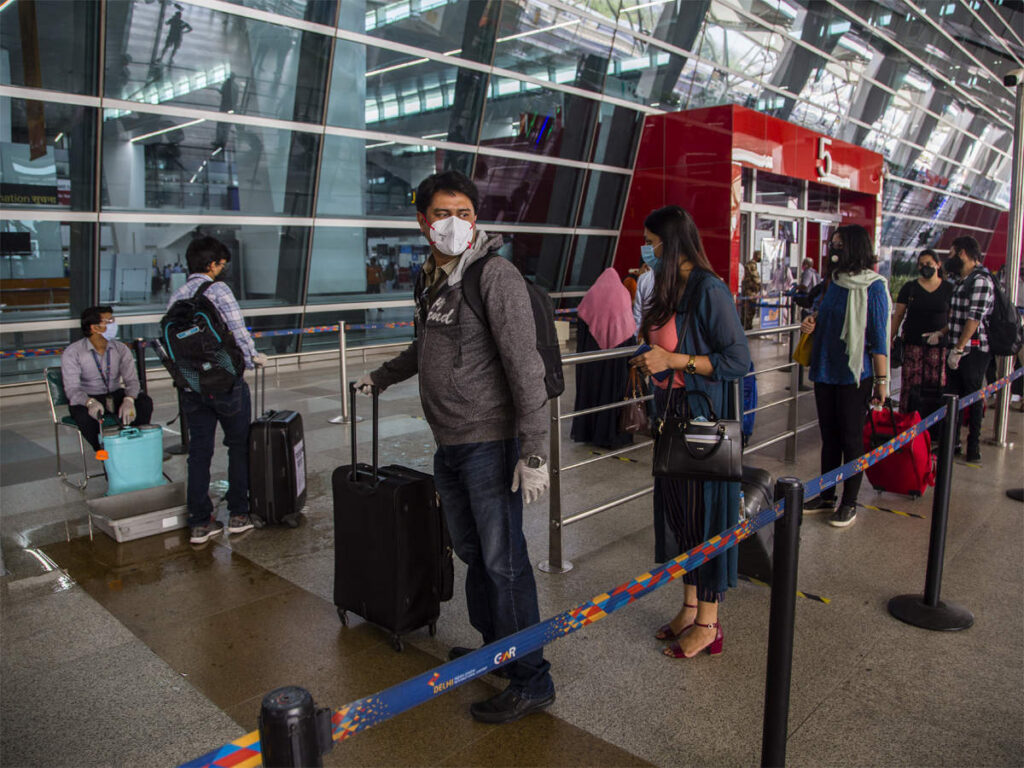Enhanced Security Measures: Airports to Install 131 Full Body Scanners, Reducing Passenger Frisking Time by 50%
To make security checks quicker and error-free at India’s busiest airports, the Airport Authority of India (AAI) is implementing a plan to deploy full-body scanners that will significantly reduce passenger frisking time. According to a senior AAI official, the introduction of millimeter-wave technology-based full-body scanners will cut down the average frisking time from 30 seconds to just 15 seconds.

The decision to use these body scanners came after successful trials conducted at major airports such as Delhi and Bengaluru. After conducting the trials, the Airport Authority of India (AAI) passed the results to the Bureau of Civil Aviation and Security (BCAS) for review. After conducting detailed discussions and meetings, the authorities approved the use of body scanners and finalized the necessary specifications.
During the initial trials of the full-body scanners, there were some challenges, including false alarms and the inability to detect certain objects. However, the official explained that security agencies operating at airports conducted subsequent trials to overcome these issues and meet their specific requirements.
Unlike conventional metal detectors, millimeter-wave-based full-body scanners are capable of detecting liquids or plastic concealed underneath a passenger’s clothing. These scanners work based on body contours and are designed to identify objects that may be concealed on or inside the body.
AAI Plans
The AAI plans to install a total of 131 full-body scanners at various airports operated by the authority. The number of scanners at each airport will depend on the passenger load. The approved body scanners are highly accurate, address privacy concerns, and pose no health risks. Their implementation will result in faster and more accurate security clearance, ensuring smoother security checks for passengers, the official stated.
The existing security systems, which include door frame-type metal detectors (DFMDs) and metal detectors for frisking passengers, will be replaced with full-body scanners in a phased manner. However, the deployment of security personnel at the airports will remain unaffected by this change, as confirmed by the official.
When asked about the significant procurement of security systems, the official emphasized that India is the world’s third-largest and fastest-growing aviation market. Therefore, world-class security systems are essential to provide convenience and ensure the safety of passengers. The AAI will soon release a tender for the procurement process, and several European companies have expressed interest in supplying the scanners, the official added.
In addition to the full-body scanners, the AAI also plans to procure 600 new Dual View X-ray hand-baggage scanners. These scanners will further enhance the efficiency and accuracy of security checks for passengers’ belongings.
The implementation of enhanced security measures through the installation of full-body scanners and upgraded X-ray baggage scanners demonstrates AAI’s commitment to ensuring the safety and convenience of air travelers in India. With reduced frisking time and improved detection capabilities, passengers can expect smoother and more efficient security checks at the country’s busiest airports.
Also, Read: Indian Aviation News
Private & Non-scheduled Charter operators in India
Go through, the Mall of Aviation
For the best HELIPAD CONSULTANCY



